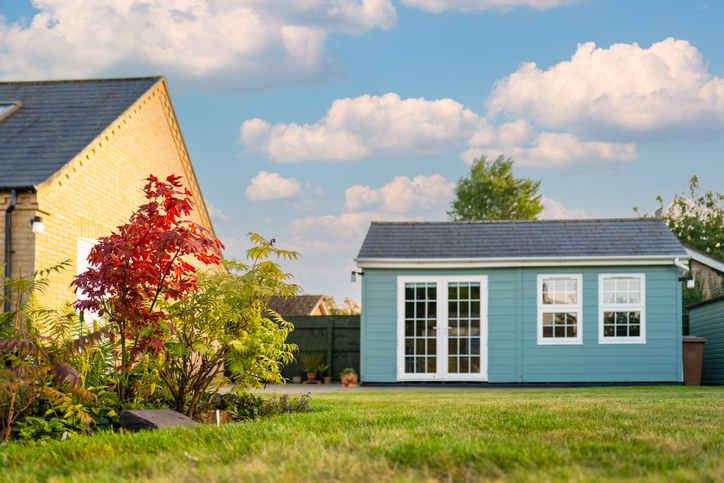As housing needs evolve and property values continue to rise, many homeowners are exploring the benefits of constructing an Accessory Dwelling Unit (ADU) on their property. In Vancouver, Washington, the timing couldn’t be more perfect for considering such an addition. An ADU offers homeowners a versatile solution to meet various needs, whether you’re looking to increase your property’s value, create additional rental income, or accommodate family. Moreover, as the housing market becomes more competitive, adding an ADU can provide a strategic advantage.
The potential advantages of an ADU are numerous and multifaceted. From enhancing property value to providing sustainable living options, ADUs meet the needs of diverse homeowners. The current housing climate in Vancouver supports this trend, making it an opportune time to invest in such a project. With community initiatives and favorable local policies, the groundwork has been laid to make building an ADU both a practical and financially sound decision.
What Is an ADU?
An Accessory Dwelling Unit, or ADU, is a secondary housing unit on a single-family residential lot. These units can be attached or detached from the main residence and typically include all the amenities needed for independent living—such as a kitchen, bathroom, and sleeping area. ADUs are known for their flexibility, allowing homeowners to use them as rental units, guest houses, or even as a private space for family members. This versatility makes ADUs an attractive option for homeowners who wish to maximize their property’s utility.
ADUs can also be a unique way to add architectural interest to a property. With the right design, they can complement the main house and enhance the overall aesthetics of your home. They offer a creative outlet for homeowners to express their personal style while adding practical functionality. Additionally, ADUs can be designed with sustainability in mind, incorporating energy-efficient materials and systems to reduce environmental impact.
Pros and Cons of Building an ADU in Vancouver
Before diving into the construction process, it’s essential to weigh the pros and cons of building an ADU in Vancouver, Washington. Understanding these factors can help you make an informed decision that aligns with your goals and expectations.
Advantages
Increased Property Value: One of the most significant advantages of building an ADU is the potential to increase your property’s overall value. An ADU can be a major selling point for future buyers, offering additional living space or rental income potential. This added value can provide a substantial return on investment, especially as property prices continue to rise in Vancouver.
Rental Income Potential: ADUs provide an excellent opportunity to generate rental income. With Vancouver’s growing real estate market, renting out your ADU can help offset mortgage payments or provide a steady income stream. This can be particularly beneficial for homeowners looking to supplement their income or cover the costs associated with owning and maintaining a property.
Flexible Living Arrangements: ADUs offer flexibility for families that might need to accommodate aging parents, adult children, or extended family members. They provide a private and independent living space while keeping loved ones close by. This can be an ideal solution for multi-generational living or for families who wish to offer support to their relatives without sacrificing privacy.
Sustainability: ADUs are typically smaller than traditional homes, requiring fewer resources to build and maintain. This can result in a smaller carbon footprint and lower utility bills. By using sustainable building materials and energy-efficient systems, homeowners can further reduce their environmental impact and promote eco-friendly living.
Considerations
Upfront Costs: Constructing an ADU requires a significant initial investment. Costs can vary depending on the size, design, and materials used, but it’s crucial to budget accordingly. While the long-term financial benefits can be substantial, the upfront financial commitment may be a barrier for some homeowners.
Zoning and Permitting: Navigating the zoning laws and obtaining necessary permits can be challenging. Each city, including Vancouver, has specific regulations regarding ADUs, and it’s important to ensure compliance. Understanding these requirements is crucial to avoid potential legal issues and delays in the construction process.
Impact on Privacy: Adding an ADU can impact your property’s privacy, as it introduces additional residents or tenants. This is something to consider, especially if your property size is limited. Homeowners will need to carefully plan the ADU’s placement to maintain a sense of privacy and minimize disturbances.
Maintenance and Management: Owning an ADU means taking on additional maintenance responsibilities. If you choose to rent it out, you’ll also need to manage tenants and rental agreements. This can add to your workload and require time and effort to ensure the property remains in good condition and tenant relationships are positive.
Why Now Is the Right Time
Several factors make now an ideal time to consider building an ADU in Vancouver, Washington. The city’s real estate market, community initiatives, and local policies have created an environment that supports and encourages the development of ADUs.
Vancouver’s real estate market has been on an upward trajectory, with property values steadily increasing over the years. This trend makes investing in an ADU an attractive option for homeowners looking to maximize their property’s potential. As property values rise, so does the potential for rental income and future resale value. This growth in property value can provide financial security and a substantial return on investment.
Additionally, in a market where housing demand outpaces supply, ADUs can offer a competitive edge. By providing additional living spaces, homeowners can attract a broader range of potential buyers or tenants, further capitalizing on rising property values. This strategic advantage can be particularly beneficial in a competitive housing market.
The city of Vancouver has recognized the benefits of ADUs and has implemented policies to make their development more accessible. These policies include streamlined permitting processes and incentives for homeowners who choose to build ADUs. This supportive environment can help reduce the time and costs associated with construction. Homeowners can benefit from these policies, making the process of building an ADU less daunting and more financially feasible.
Furthermore, local government initiatives often include educational resources and workshops to assist homeowners in understanding the benefits and processes involved in building ADUs. These resources can provide valuable guidance and support throughout the planning and construction phases, ensuring a smoother experience for homeowners.
With the population of Vancouver continuing to grow, there is an increasing demand for diverse housing options. ADUs offer a solution to this demand by providing affordable and flexible living spaces within established neighborhoods. By building an ADU, homeowners can contribute to the community’s housing needs while benefiting financially. This contribution can also enhance community relations and foster a sense of civic responsibility.
Moreover, ADUs can help address housing shortages by providing alternative living arrangements for individuals and families seeking affordable housing options. This can alleviate some of the pressures on the housing market, offering a viable solution for both homeowners and prospective tenants.
Steps to Building an ADU in Vancouver
If you’ve decided that building an ADU is the right choice for you, it’s essential to understand the steps involved in the process. Here’s a general outline to guide you through:
Research Regulations
Begin by researching Vancouver’s zoning laws and regulations regarding ADUs. Familiarize yourself with the requirements and restrictions to ensure your project complies with local ordinances. Additionally, consider your budget, design preferences, and intended use for the ADU. Thorough research and planning will lay a strong foundation for your project and help avoid potential setbacks.Consult Experts
It’s also beneficial to consult with local experts or other homeowners who have built ADUs to gain insights and tips. They can provide practical advice based on their experiences, helping you navigate the complexities of the process more effectively.Design and Permitting
Work with an architect or designer to create a detailed plan for your ADU. Once you have a design, submit it to the city for approval and obtain the necessary permits. This step may involve meetings with city officials or adjustments to your plans to meet zoning requirements. Collaboration with professionals ensures that your ADU is both functional and compliant with local codes.Engaging with experienced professionals can also enhance the design process, ensuring that your ADU meets both your aesthetic and practical needs. They can help you optimize space and incorporate sustainable features, adding value to your project.
Construction
Once you have the necessary permits, you can begin construction. Hire a reputable contractor experienced in building ADUs to ensure quality and compliance with local building codes. Monitor the construction process to ensure it stays on schedule and within budget. Effective communication with your contractor is key to addressing any issues promptly and maintaining project momentum.Throughout construction, regular site visits and updates can help you remain informed and engaged with the project’s progress. This involvement can prevent misunderstandings and ensure the final result aligns with your vision.
Inspection and Occupancy
After construction is complete, schedule final inspections with the city to ensure everything meets code requirements. Once approved, you can furnish and occupy your ADU, whether it’s for personal use or rental purposes. Completing these inspections is crucial to confirm that your ADU is safe and ready for occupancy.Management
Once your ADU is ready, consider how you will manage it, especially if you plan to rent it out. Setting clear guidelines and having a management plan in place will facilitate a smoother transition to occupancy.
Conclusion
Building an ADU in Vancouver, Washington, offers numerous benefits, from increasing your property’s value to providing additional income and flexible living arrangements. While there are challenges to consider, the supportive local policies and rising property values make now an opportune time to invest in an ADU. By carefully planning and executing your project, you can create a valuable asset that enhances your lifestyle and financial security.
Whether you’re a homeowner looking to maximize your property’s potential or simply seeking additional living space, an ADU could be the perfect solution for your needs. Start planning today and take advantage of the opportunities that building an ADU in Vancouver has to offer. A well-executed ADU project can improve your quality of life and increase your property’s appeal, making it a wise investment for the future.


Leave a Reply